#Eric Stephenson
Text

1996 Youngblood/X-Force Extreme Comics House Ad
#youngblood#x-force#shaft#cable#x-men#mutants#rob liefeld#eric stephenson#roger cruz#extreme studios#extreme#extreme comics#extreme comics house ads#comic ads#print ads#comic house ads#house ads#image#image comics#marvel#marvel comics#1996#90s#1990s
34 notes
·
View notes
Text
Team Youngblood #3
Writers: Rob Liefeld, Eric Stephenson
Artists: Chap Yaep
Publisher: Image Comics
This issue is pretty much one long action sequence. Fight scene after fight scene. It opens with Sentinal and Dutch fighting Giger, but he manages to subdue both of them. Riptide makes up for her absence in the previous issue by showing up to save Photon, Masada, and Cougar, just as they were surrounded by soldiers.…

View On WordPress
#Chap Yaep#Eric Stephenson#Extreme Studios#image comics#Rob Liefeld#Team Youngblood#Team Youngblood 3#youngblood
3 notes
·
View notes
Text
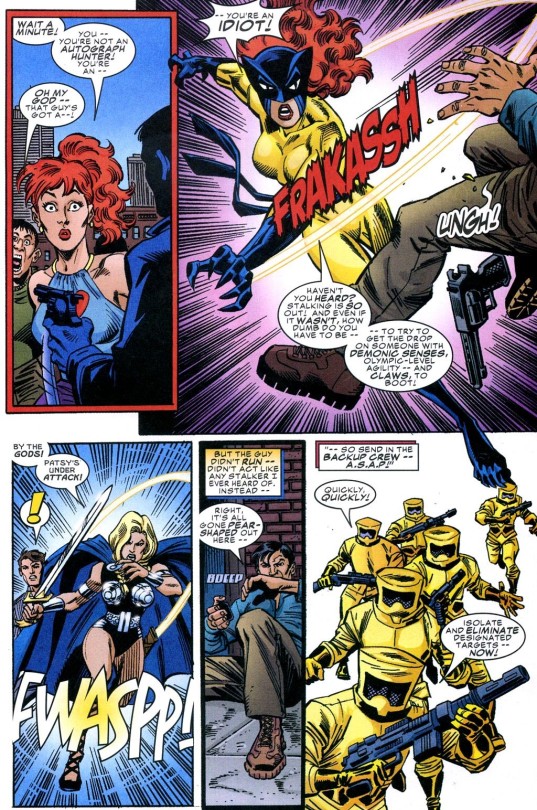


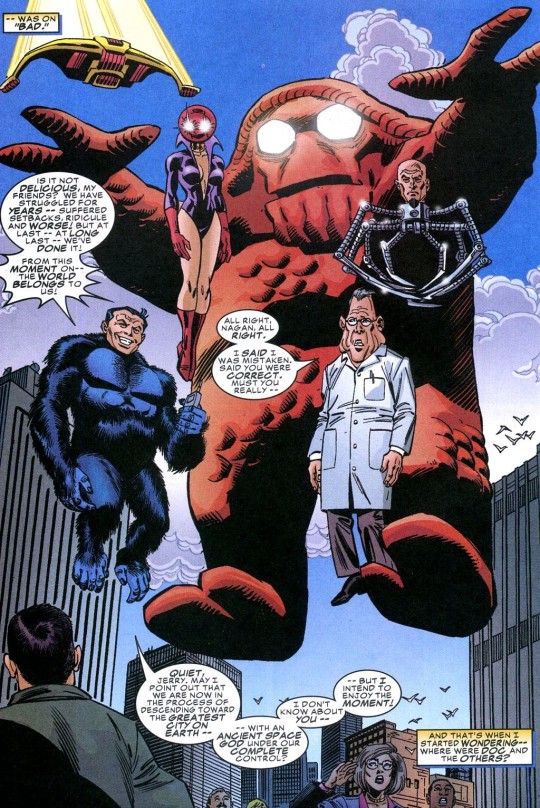
The Defenders vs Orrgo the Unconquerable and the Headmen by Ron Frenz
#defenders#valkyrie#nighthawk#hellcat#headmen#orrgo the uncnquerable#ruby#gorilla man#shrunken bones#chandu the mystic#jerold morgan#arthur nagan#ron frenz#marvel comics#modern age#kurt busiek#erik larsen#eric stephenson
2 notes
·
View notes
Photo

Youngblood Yearbook 1 (1993) by Eric Stephenson & Chap Yaep
Cover: Chap Yaep
35 notes
·
View notes
Text
The Nowhere Men # 7-11 from Image Comics, written by Eric Stephenson with art by Dave Taylor.
This is the 2nd arc of the title and I originally picked them up from Dave Taylor himself at a convention in 2016 (otherwise I probably would never had bothered with the title etc). All personally signed by Dave of course - top man!
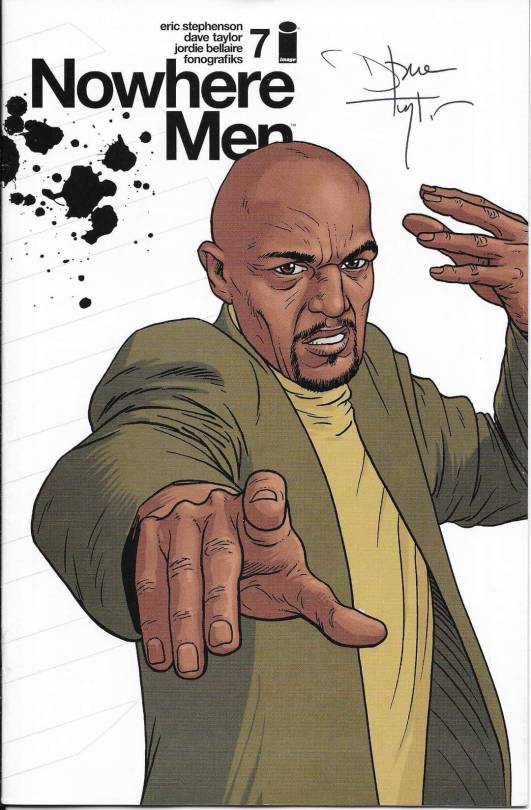

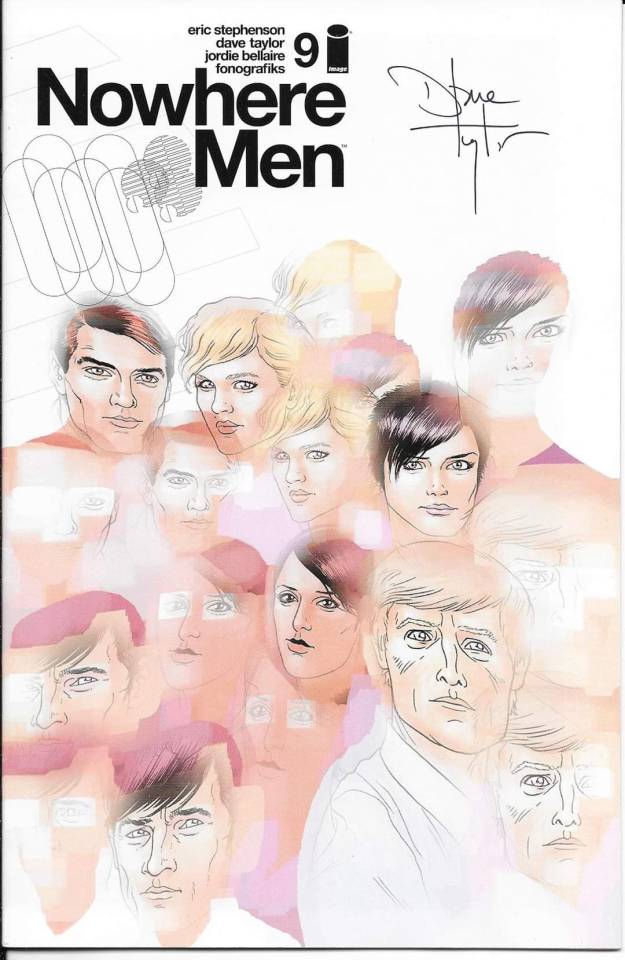
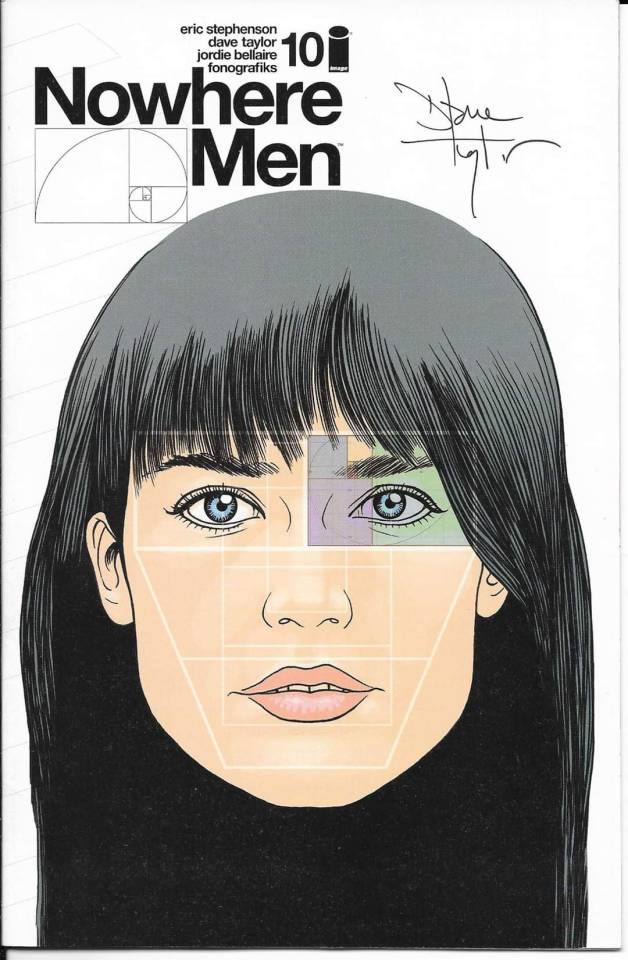

Great art by Dave Taylor throughout but sadly the final ish of his arc has yet to appear!
#comic books#image comics#dave taylor#signed#nowhere men#indie comics#eric stephenson#jordi bellaire
0 notes
Photo



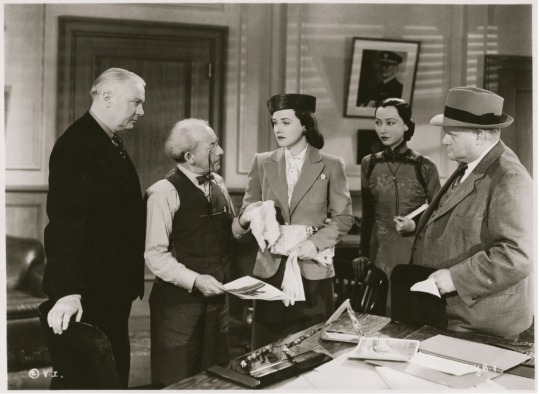
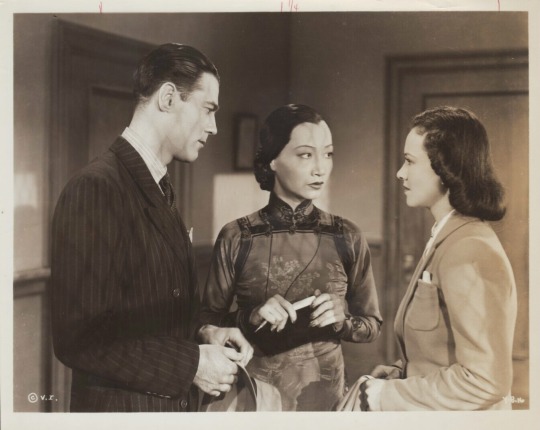

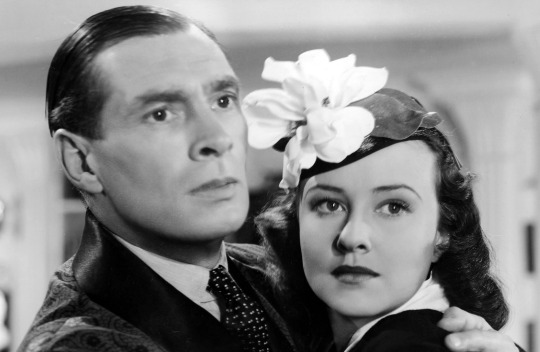
When Were You Born (1938) William C. McGann
July 30th 2022
#when were you born#1938#william c. mcgann#anna may wong#charles c. wilson#frank jaquet#margaret lindsay#eric stanley#leonard mudie#james stephenson#lola lane#anthony averill#maurice cass#jeffrey lynn#manly p. hall#manley p. hall#carole landis
11 notes
·
View notes
Text
youtube
Full Fathom Five - Arkansas
#full fathom five#arkansas#eric melcher#dave stephenson#brent foster#punk#punk rock#paingiver#12'' ep#1988#Youtube
0 notes
Text
Top Gun: Maverick (2022)
Top Gun: Maverick by #JosephKosinski starring #TomCruise, #MilesTeller and #JenniferConnelly, "this thrill ride delivers on all counts", Now reviewed on MyOldAddiction.com
JOSEPH KOSINSKI
Bil’s rating (out of 5): BBBB
USA, 2022. Paramount Pictures, Skydance Media, Jerry Bruckheimer Films, Don Simpson/Jerry Bruckheimer Films. Story by Peter Craig, Justin Marks, Screenplay by Ehren Kruger, Eric Warren Singer, Christopher McQuarrie, based on characters created by Jim Cash, Jack Epps Jr.. Cinematography by Claudio Miranda. Produced by Jerry Bruckheimer, David Ellison,…

View On WordPress
#Alec Williams#Austin Bowerman#Bashir Salahuddin#Bob Stephenson#Brian Ferguson#Charles Parnell#Chaz Ingram#Chelsea Harris#Chido Nwokocha#Christopher McQuarrie#Claudio Miranda#Danny Ramirez#Darnell Kirkwood#David Ellison#Don Simpson/Jerry Bruckheimer Films#Ed Harris#Eddie Hamilton#Ehren Kruger#Eric Warren Singer#Glen Powell#Greg Tarzan Davis#Hans Zimmer#Harold Faltermeyer#Ian Gary#Jack Epps Jr.#Jack Schumacher#Jake Picking#James Handy#Jason Robert Boles#Jay Ellis
1 note
·
View note
Text
August 2023 Reads
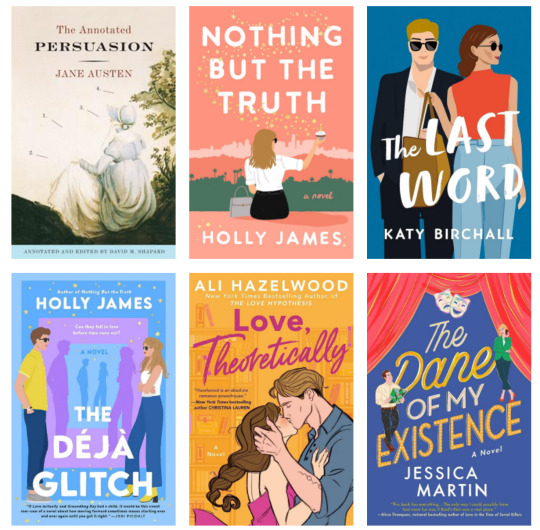

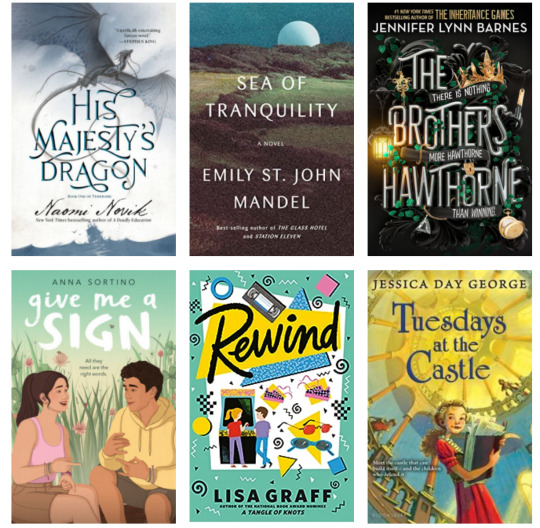


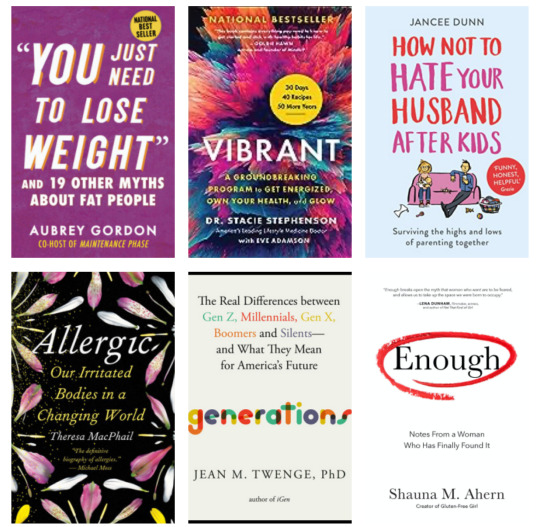


The Annotated Persuasion - Jane Austen
Nothing But the Truth - Holly James
The Last Word - Katy Birchall
The Deja Glitch - Holly James
Love, Theoretically - Ali Hazelwood
The Dane of My Existence - Jessica Martin
They Hate Each Other - Amanda Woody
Mister Magic - Kiersten White
Stars, Hide Your Fires - Jessica Mary Best
Legends & Lattes - Travis Baldree
The Study of Poisons - Maria V. Snyder
This is How You Lose the Time War - Amal El-Mohtar, Max Gladstone
His Majesty's Dragon - Naomi Novik
Sea of Tranquility - Emily St. John Mandel
The Brothers Hawthorne - Jennifer Lynn Barnes
Give Me a Sign - Anna Sortino
Rewind - Lisa Graff
Tuesdays at the Castle - Jessica Day George
Mice Skating - Annie Silvestro
The Rock from the Sky - Jon Klassen
Ancient Night - David Bowles
Fangirl, Vol 1 - Sam Maggs, Rainbow Rowell
Fangirl, Vol 2 - Sam Maggs, Rainbow Rowell
Family Style - Thien Pham
It's Lonely at the Centre of the Earth - Zoe Thorogood
Congratulations, the Best is Over - R. Eric Thomas
Strong Female Character - Fern Brady
Everything I Know About Love - Dolly Alderton
Sipping Dom Perignon Through a Straw - Eddie Ndopu
Organizing for the Rest of Us - Dana K. White
You Just Need to Lose Weight - Aubrey Gordon
Vibrant - Stacie Stephenson
How Not to Hate Your Husband After Kids - Jancee Dunn
Allergic - Theresa MacPhail
Generations - Jean M. Twenge
Enough - Shauna M. Ahern
Sensitive - Jenn Granneman
The Lady's Handbook for Her Mysterious Illness - Sarah Ramey
Dressing Barbie - Carol Spencer
Goblin Mode - McKayla Coyle
How to Resist Amazon and Why - Danny Caine
The Artist's Way - Julia Cameron
Bold = Highly Recommend
Italics = Worth It
Crossed out = Nope
Thoughts:
Some really good reads this month, and some disappointments. I really enjoyed They Hate Each Other and was surprised by how much I liked the Fangirl manga. I also finally found an Ali Hazelwood book that I didn't DNF, lol.
Goodreads Goal: 289/400
2017 Reads | 2018 Reads | 2019 Reads | 2020 Reads | 2021 Reads|
2022 Reads | 2023 Reads
43 notes
·
View notes
Photo
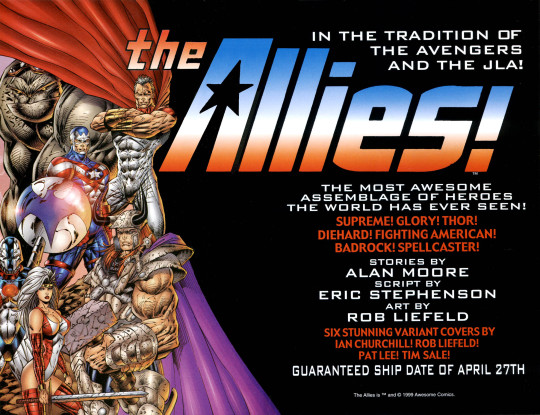
1999 The Allies Awesome Comics House Ad
This comic never came out.
#1999#the allies#awesome comics#extreme comics#awesome comics house ad#house ads#comic ad#print ads#comic house ads#alan moore#eric stephenson#rob liefeld#supreme#glory#diehard#youngblood#fighting american#badrock#comics
24 notes
·
View notes
Text
Team Youngblood #4
Writers: Rob Liefeld, Eric Stephenson
Artists: Chap Yaep
Publisher: Image Comics
This issue opens with Sentinel holding a press conference to discuss the events of the hijacking of the Liberty II space station. After that, back in Youngblood HQ, the team is told that they’re being given some time off. Riptide, Masada, and Cougar can go home immediately, while Sentinal has Photon and Dutch, who…

View On WordPress
#2#Anthony Winn#Chap Yaep#Eric Stephenson#Extreme Studios#image comics#Mark Pacella#Rob Liefeld#Team Youngblood#Team Youngblood 4#youngblood
2 notes
·
View notes
Text
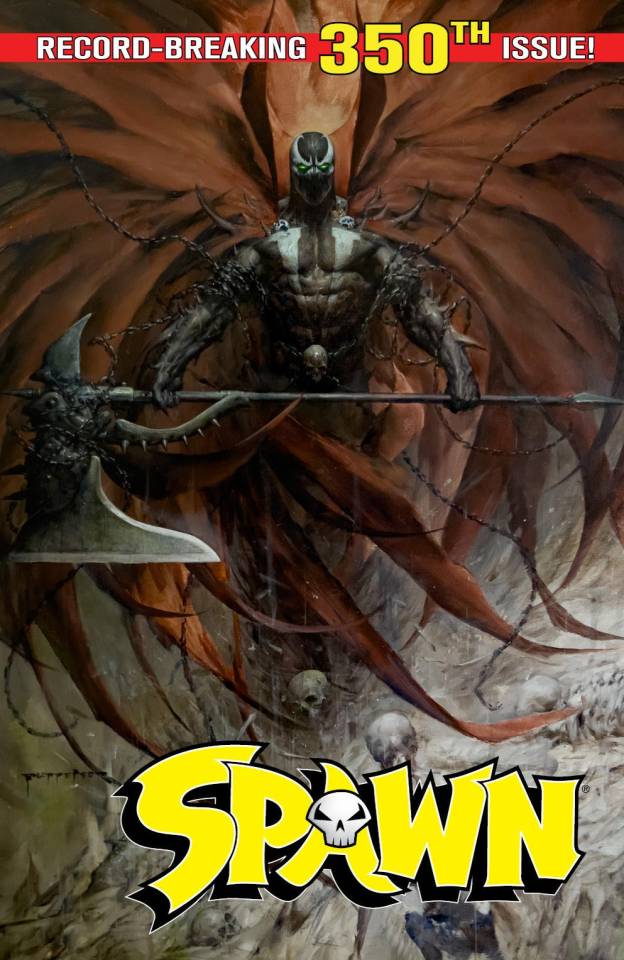

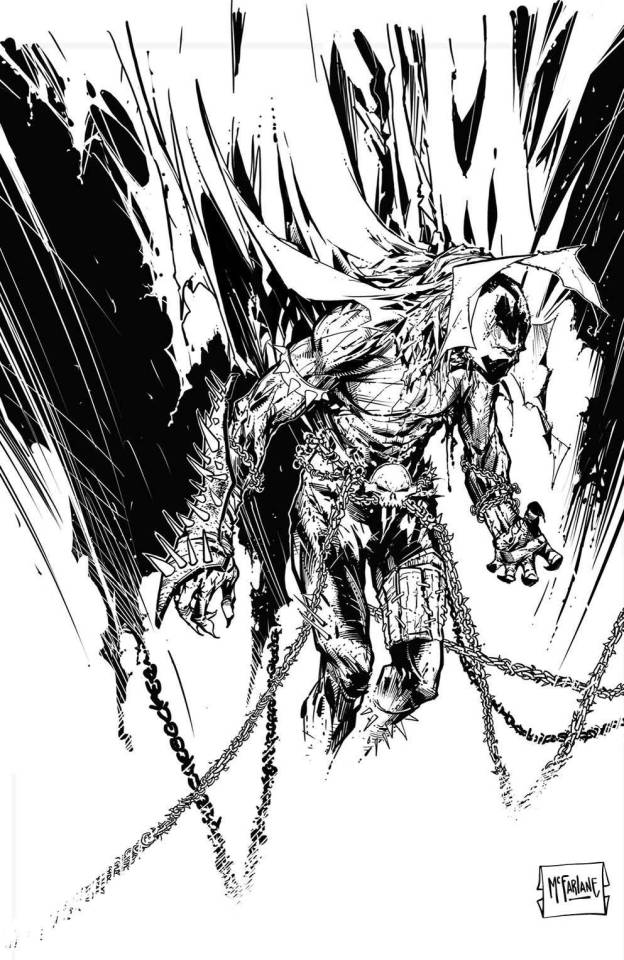

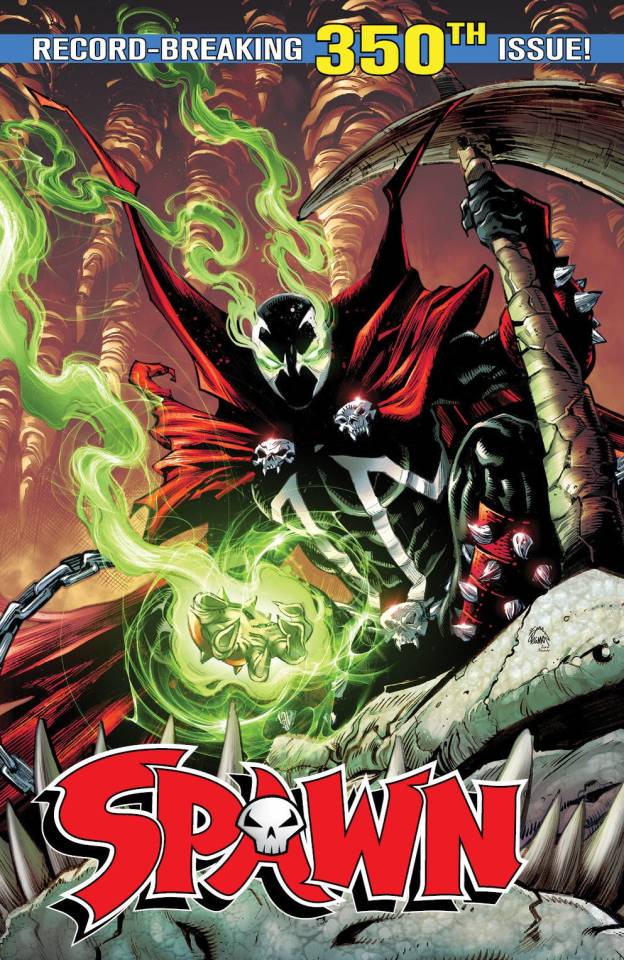
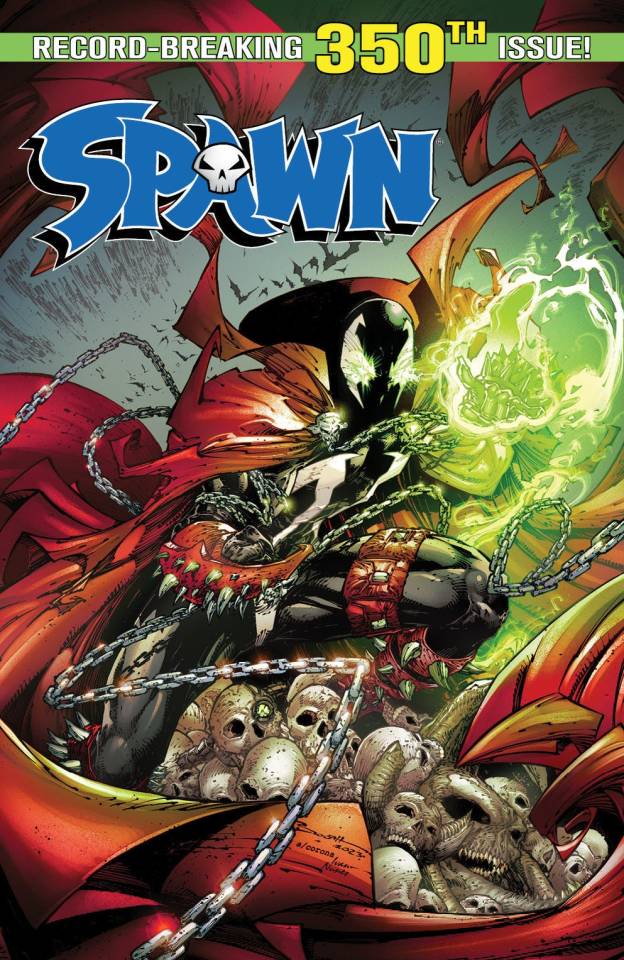
Spawn #350
"I was talking to Eric Stephenson, publisher of Image Comics, and I was saying to him, 'Man, even if you forgot the first 300 issues, which was a world record, I've still done 50 issues.,'" McFarlane told ComicBook.com's Jim Viscardi. "And then we started asking the question, 'How many books [has Image Comics] done that have gotten past 50 issues?'"
He added that the number is even smaller if you take the Image foudners and current partner Robert Kirkman (The Walking Dead, Invincible) out of the mix.
"it's shockingly not many, because I mean, again, considering we've been around for over 30 years....If you take the people from the top of the food chain at Image, it was Saga and Deadly Class...East of West."
McFarlane later noted that books like Chew and Morning Glories had hit 50, but that for a publisher that has been around as long as Image, it's shocking how few books are long-running. He suggested he would like to see more, but admitted that books like Spawn and Savage Dragon have not just the Image founders behind them, but also a long history of superhero books being long-running, episodic, and open-ended.
Cover A: Puppeteer Lee
Cover B: Todd McFarlane
Cover C: Ryan Stegman
Cover D: Brett Booth
Cover E: Jonathan Glapion
Cover F: Todd McFarlane B&W
#Spawn#todd mcfarlane#puppeteer lee#ryan stegman#brett booth#jonathan glapion#image comics#al simmons#hellspawn#spawns universe
12 notes
·
View notes
Text
2023 Favoritest Book Reads
Vineland - Pynchon, Thomas
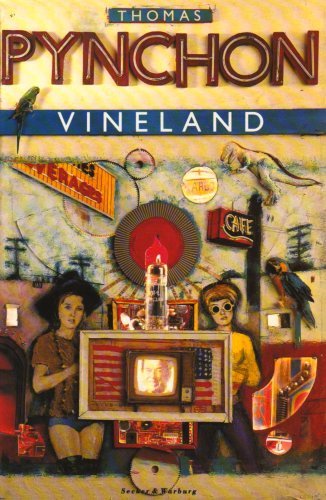
Prophet - Blaché, Sin & Helen Macdonald
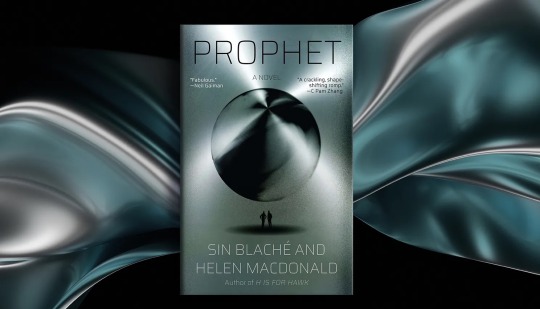
And the Ass Saw the Angel - Cave, Nick
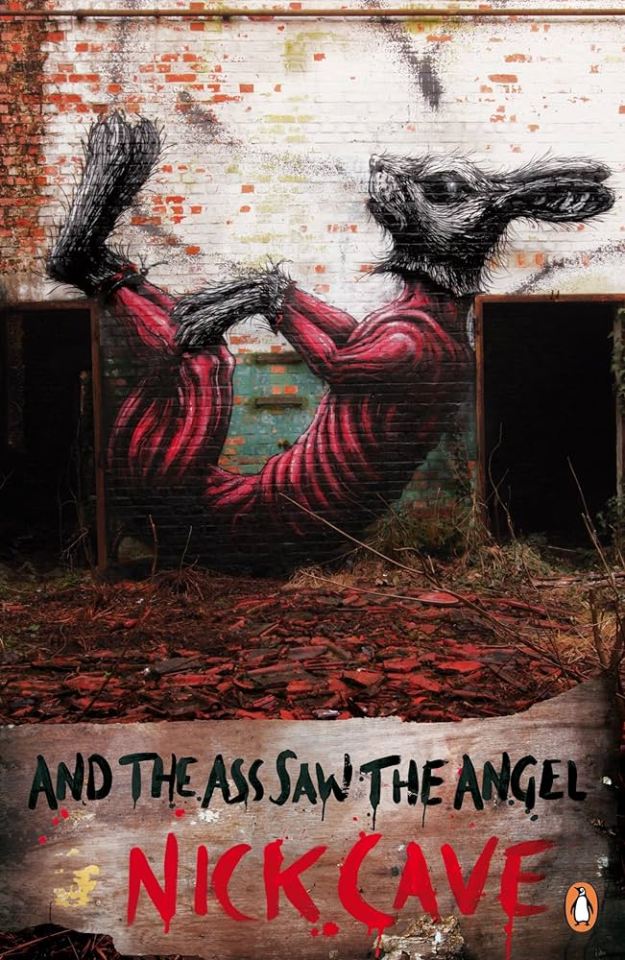
Lou Reed: The King of New York - Hermes, Will
The Color of Magic (Discworld, #1; Rincewind, #1) - Pratchett, Terry
Steal Like an Artist: 10 Things Nobody Told You About Being Creative - Kleon, Austin
Sonic Life: A Memoir - Moore, Thurston
The Fifth Season (The Broken Earth, #1) - Jemisin, N.K.
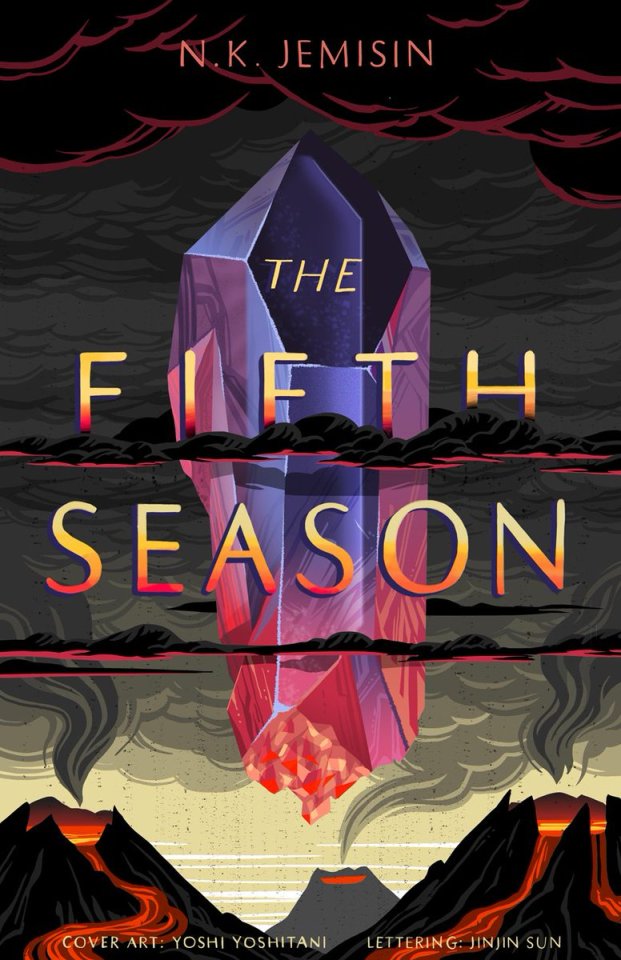
Fuzz: When Nature Breaks the Law - Roach, Mary
Everyone's a Aliebn When Ur a Aliebn Too - Sun, Jonny
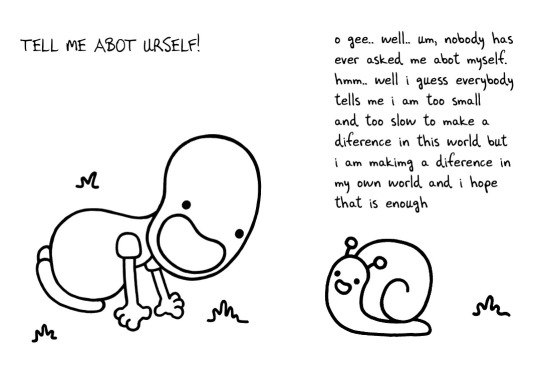
The Night Masquerade (Binti, #3) - Okorafor, Nnedi
Home (Binti, #2) - Okorafor, Nnedi
Binti: Sacred Fire (Binti, #1.5) - Okorafor, Nnedi
Binti (Binti, #1) - Okorafor, Nnedi
Black Paradox - Ito, Junji
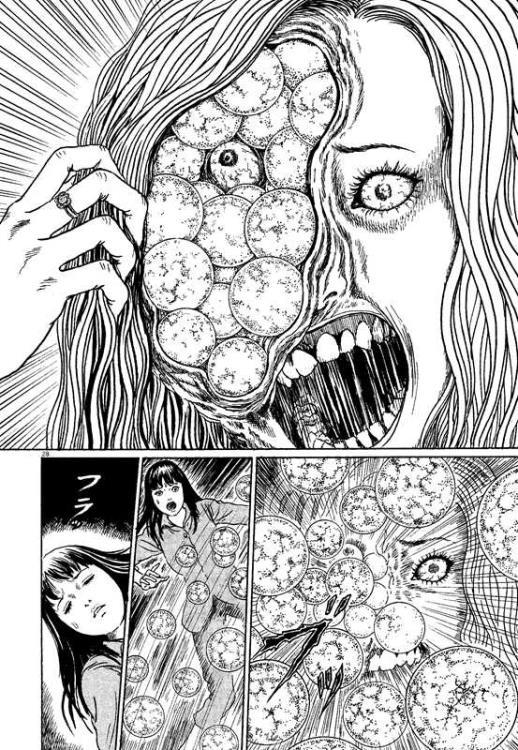
David Bowie's Low (33 1/3) - Wilcken, Hugo
Faith, Hope and Carnage - Cave, Nick
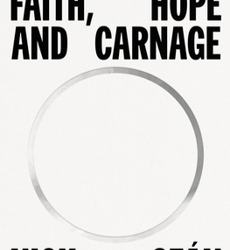
The Sirens of Titan - Vonnegut Jr., Kurt
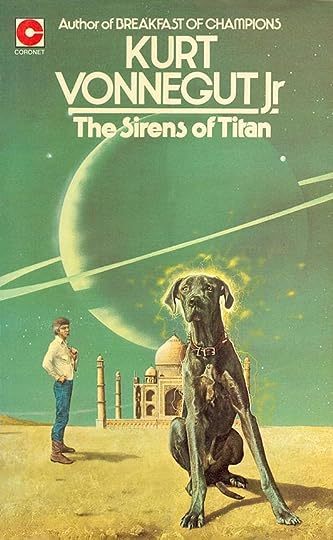
Zealot: The Life and Times of Jesus of Nazareth - Aslan, Reza
Smashed - Ito, Junji
Time Shelter - Gospodinov, Georgi
Brian Eno's Another Green World (33 1/3) - Dayal, Geeta
Armageddon in Retrospect - Vonnegut Jr., Kurt
Neverwhere (London Below, #1) - Gaiman, Neil
The Committed (The Sympathizer #2) - Nguyen, Viet Thanh
Into the Great Wide Open - Canty, Kevin
Mongrels - Jones, Stephen Graham
DisneyWar - Stewart, James B.
Bonk: The Curious Coupling of Science and Sex - Roach, Mary
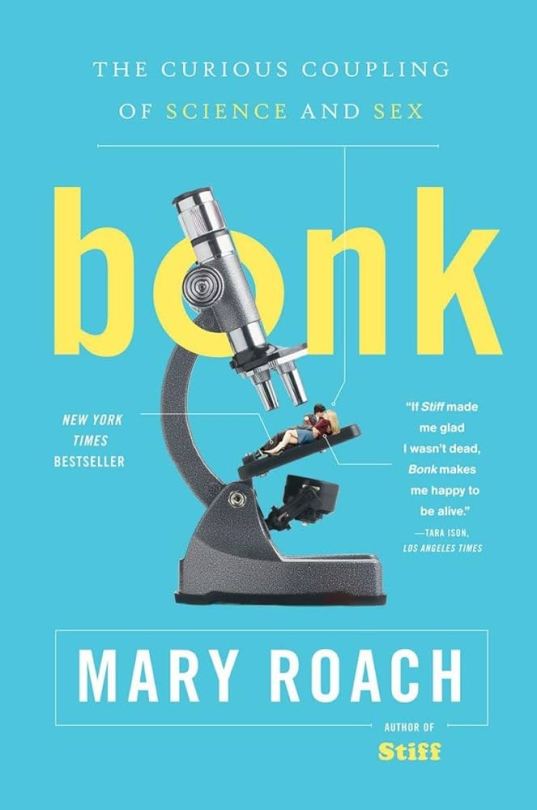
The Left Hand of Darkness - Le Guin, Ursula K.
My Bloody Valentine's Loveless (33 1/3) - McGonigal, Mike
Suttree - McCarthy, Cormac
Life's Work: A Memoir - Milch, David
The Invisible Life of Addie LaRue - Schwab, V.E.

Against the Day - Pynchon, Thomas
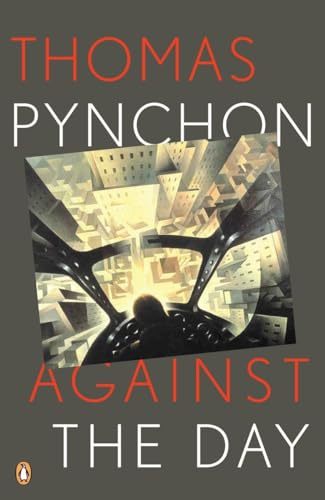
Burn It Down: Power, Complicity, and a Call for Change in Hollywood - Ryan, Maureen
Bruce Springsteen's Born in the USA (33 1/3) - Himes, Geoffrey
La Moustache - Carrère, Emmanuel
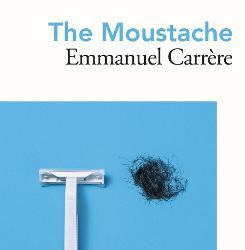
Janelle Monáe’s The ArchAndroid (33 1/3) - Favreau, Alyssa
Sooner or Later Everything Falls Into the Sea - Pinsker, Sarah
The Man Without a Shadow - Oates, Joyce Carol
The City & the City - Miéville, China
Mem - Morrow, Bethany C.
Sapiens: A Brief History of Humankind - Harari, Yuval Noah
Arcade Fire’s The Suburbs (33 1/3) - Eidelstein, Eric
Gutshot - Gray, Amelia
The Price of Time (Watch What You Wish For #1) - Tigner, Tim
The Revolution Was Televised: The Cops, Crooks, Slingers and Slayers Who Changed TV Drama Forever - Sepinwall, Alan
Just Kids - Smith, Patti
Sounds Like Titanic: A Memoir - Hindman, Jessica Chiccehitto
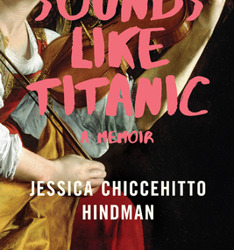
Flicker - Roszak, Theodore
Tinderbox: HBO's Ruthless Pursuit of New Frontiers - Miller, James Andrew
Flashback - Simmons, Dan
Flaming Lips' Zaireeka (33 1/3) - Richardson, Mark
The Sympathizer (The Sympathizer #1) - Nguyen, Viet Thanh
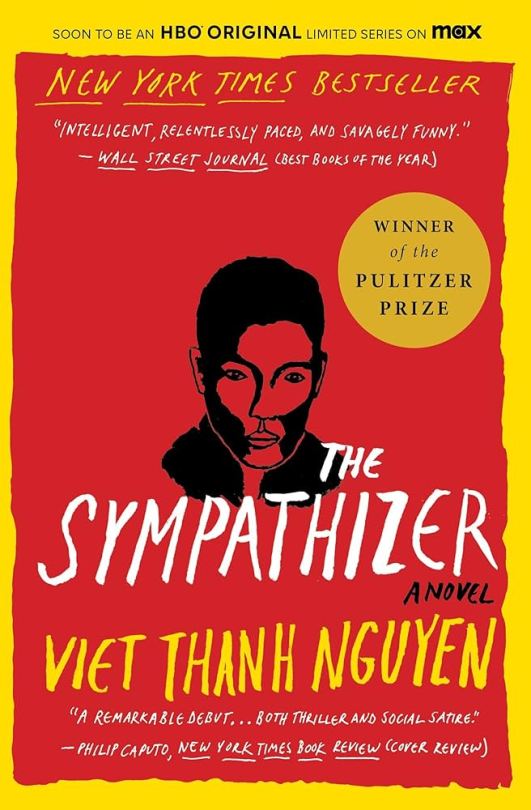
Pavement's Wowee Zowee (33 1/3) - Charles, Bryan
Neuromancer (Sprawl, #1) - Gibson, William
Invisible Cities - Calvino, Italo
Don't Fear the Reaper (The Indian Lake Trilogy, #2) - Jones, Stephen Graham

The Wes Anderson Collection - Seitz, Matt Zoller
Flow My Tears, the Policeman Said - Dick, Philip K.
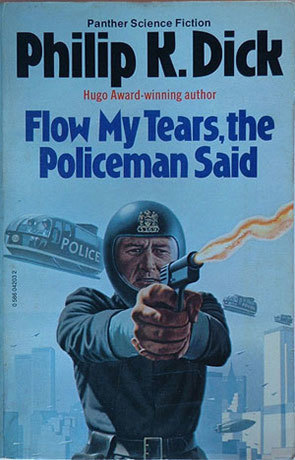
Kendrick Lamar's To Pimp a Butterfly (33 1/3) - Maner, Sequoia
The Nineties - Klosterman, Chuck
Tomorrow, and Tomorrow, and Tomorrow - Zevin, Gabrielle
Wanderlust: An Eccentric Explorer, an Epic Journey, a Lost Age - Mitenbuler, Reid
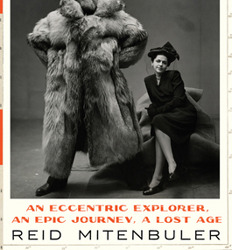
A Heart That Works - Delaney, Rob
Imago (Xenogenesis, #3) - Butler, Octavia E.
Cryptonomicon (Crypto, #1) - Stephenson, Neal
Blacktop Wasteland - Cosby, S.A.
Pearl Jam's Vs. (33 1/3) - Brownlee, Clint
Tracy Flick Can't Win - Perrotta, Tom
Devil House - Darnielle, John
Adulthood Rites (Xenogenesis, #2) - Butler, Octavia E.
Heat 2 - Mann, Michael & Meg Gardiner
Joy Division's Unknown Pleasures (33 1/3) - Ott, Chris
Dawn (Xenogenesis, #1) - Butler, Octavia E.
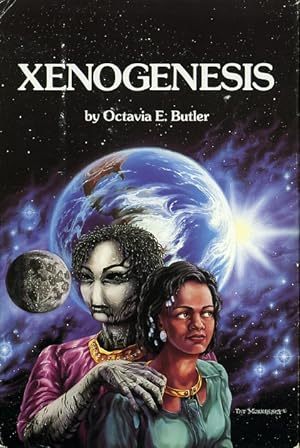
The Diamond Age: Or, a Young Lady's Illustrated Primer - Stephenson, Neal
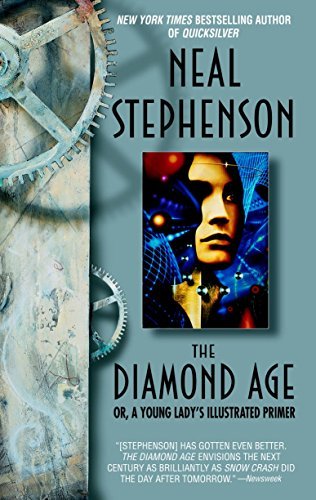
The Republic of Thieves (Gentleman Bastard, #3) - Lynch, Scott
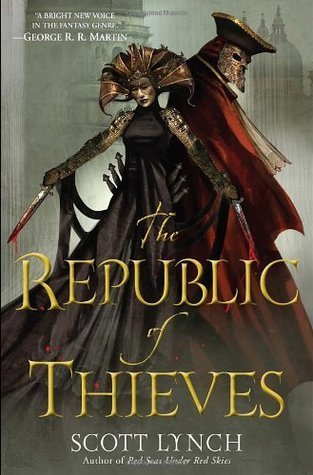
The Year of the Flood (MaddAddam, #2) - Atwood, Margaret
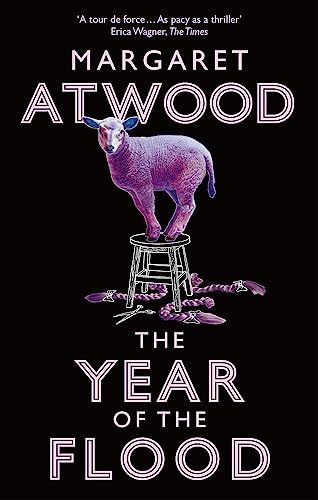
2 notes
·
View notes
Text
20 Writing Things I Wish I Knew 20 Years Ago
It’s my birthday. At 32 I feel old. I am still full of things I wish I learned earlier, when I started trying to become a writer. A lot of regrets for time wasted and mistakes made. So here is the 20 basic things I wish I knew 20 years ago. Maybe some of it will help someone else save off some time on their own path. If not, maybe you all will have a good laugh.
1. All Advice is Subjective
You will notice a lot of the points on this list are mutually contradictionary or make you go “this is just like an exception to point X”. This is by the design. All advice and all thoughts on writing you will ever read, this list included, is what is working for the person who wrote it, within the framework of their personal perspective and preferences. It may not necessairly work for you. Moreover, I am a person who often goes “but what about...?” when being told something only works in a specific way. There is an exception to every rule that is often a different rule for different purpose. I would even say that every contradictory pair or rules exists on a sliding scale and it is your decision towards which you lean more or whenever you disregard one enteirly in favor of the other. Cherry pick what works for you, disregard the rest, if you find everything I say trash but walk out of this post picking even a single thing you find worth remembering, my time writing it was not wasted.
2. Rules Are Made to Be Broken
One of ironclad rules is that you can never make your hero too strong. That if they can just rollstomp over every opponnent then the tension of the story is enteirly gone and no one will care. We can look at several titles that didn’t listen to it and never gained any fame, now being doomed to obscurity forever, like Hellsing, Overlord or One-Punch Man. Wait, they’re all popular? And most popular superhero of all time is Batman, despite being at this point a giant meme about how he always wins?
(sidenote: don’t come at me with some crap how Batman struggles or you can believe he is in actual danger, it may be just me but I never could beleive he will be anything, but midly inconvenienced at best, since he unbroke his back in the 90′s. Not even when he was laser-point nuked in the face by cosmic god of fascism, from which he walked out perfectly fine btw)
For every rule you will read, there is a perfectly good way, several even, to disregard or break it enteirly. Honestly, you can do whatever you want, as long as you know what you’re doing. As a matter of fact, you should question every rule, even on this list. As I have said before, they often are made by and for people with specific outlook in life, that reflect on their writing.
Just so you don’t think this is baseless rambling, even the pros are questioning the validity of supposedly fundamental rules all the time. I’ll demonstrate this on a big one: Viet Thanh Nguyen has argued in 2017 that the “show don’t tell” rule, which so many take as gospel, is a rule invented for white people born in country they publish and pretty much useless for POC and immigrant writers, who may often need to describe emotions and experiences impossible to show. Eric Bennet points out the rule was, not even joking, part of CIA’s Cold War propaganda effort. Cecilia Tan on the pages of Uncanny Magazine #18 opens her own dissection of the rule with “ Yes, the dreaded “infodump” is seen as a hallmark of bad writing, but it’s faulty logic to conclude that therefore all infodumps are bad. Try telling that to Neal Stephenson the next time he wants to exposit about Sumerian”.
3. You Cannot Break What You Do Not Know
Fuck ‘em rules, got it? However, you cannot accomplish it without actually knowing the rule, what it does and why people adhere to it. The cases of ignorant gracefully stumbling into a great subversion or a fresh take on a cliche are few and far in between. It’s not that they do not happen. but the chances of you managing to pull it off are too slim to attempt it deliberatelly. If you want to break the rule you first need to understand how it works and where are it’s weak points and most importantly, what happens when you do break it.
4. You Can Have Too Much Of A Good Thing
This really applies to anything I will advise, but since we mentioned breaking the rules and subversion, it comes with perfect illustration. Why did Game of Thrones finale suck so much? In my belief it is because the show was designed on the principle of subverting, deconstructing and defying as many tropes of classic fantasy, chilvaric legends and fairy tales as possible. And that did carry it on for a very long time by the sheer novelty. Then came a moment they had to actually set up the end and creators found themselves in a pickle. Because there was no way to set up a satisfying ending that did not, in one way of another, play into the same tropes and genre conventions they spent so much time tearing down. So they ended with narratively unsatisfying clusterfuck that seems more concerned with defying expectations than actually giving a proper conclusion. Staying true to what got the series popular in the first place and making something that feels narratively complete at the same time turned out to be impossible.
5. Have Something To Say
Everything you write is saying something. Everything that has a story is going to have message, themes and politics. Every book, every comic, every game. People who rush at you with examples trying to prove how such claim is wrong either do not see or willfully deny what lies at the very core of that example. That or said an exception proving the rule. Demanding someone proves to you politics of Tetris only shows that you need to be some abstract nonsense, divorced from any semblance of the narrative to not have politics in it.
You either will say something intentionally through your story and shape it to fit what you are trying to say, or you will do unintentionally. And believe me, people are gonna take different things from your creation anyway, last thing you need is to let something from your messy subconciousness slip through.
Be passionate about the story you tell, be passionate about its message. Speak of things you love, speak of your fears, speak of what angers you. Writer cannot be detached from the world, from life or from people. You’re not a dispassionate, objective observer removed from reality. I get you may be shy, or feel your own experiences aren’t worth talking about. Or maybe the memories are still too painful for you to open that particular wound. That’s okay. But I’m sure you are passionate about something. Even if your work is deriverative in some way. I touched upon it in my previous list. Even if you’re passionate about things like fictional characters or stories, there is likely a deeper meaning to them, that resonates with you. Tap into it.
6. Shut Up
Stories have different levels of clarity. In some it is obvious what is happenning, others intentionally muddle the waters to confuse the audience. Readers should put down your work having clear picture of everything you wanted to make clear. At the same time, they should be full of question and uncertan about things you purposefully left ambigious and unexplained. The former requires no explanations from the author outside the work itself. The latter should never be explained that way. If you find yourself having to go on the record and explain or clarify things you didn’t intend to left out unexplained, you fucked up.
7. Take Care of Your Needs
Don’t write when you’re hungry. Don’t write when you’re sleep deprived. Don’t write when you’re horny. In each of these cases the quality of your work is going to suffer. Even smut needs you to look at a sex scene with a rational, un-horny eye once in a while. Eat a hot dog, take a nap, masturbate. Take care of your needs, then go back to writing. If you know a scene can cause you to crave one of your needs, go take care of that need in advance and THEN write it. Similiarly if you know the writing you’re about to do may hit one of your triggers, prepare the tools of emotional support of your choice at hand.
DISCLAIMER: I have never done drugs aside coffee, not even a smoke. I have no fucking idea how this advice may interact with addictions so please do NOT take it as encouraging you to do that kind of things.
8. Characters Matter More Than The Plot
Plot does not matter as much as people like to think. At the end of day it is merely a framework within which the characters operate and interact. You can craft the most complex, intricate plot ever created. But if it unfolds for a cast of dull cardboard cutouts that have less agency than a pawn on a chessboard and seem more concerned with saying lines that will get them quoted on Tvtropes than experiencing actual human emotions, nobody's gonna give a shit. Great plot will not save the story with bad characters, but the opposite is very much true - if you have great, multi-dimensional characters and respect their choices and agency, people may stick with you even if the base plot is a convoluded storm of cliches and a mess of increasingly nonsensical events. As long as it feels that it is convoluded storm of cliches and a mess of increasingly nonsensical event that the characters made by their own choices and actions.
In RPGs an equivalent of this advice would be “situations, not stories”: Don’t design a story of what is going to happen on a session and then railroad the players to experience it. Create a situation, have a plan how it would develop if the player characters never got involved, then let them wreck it with their own choices and decisions. I’m not sure it is applicable to writing, however. At the end of the day YOU control ALL of the characters. They aren’t real and do not make their own decisions, you do it for them. Ultimatelly all chocies they make are serving to tell the story you want to tell. However if you can convince the readers of the opposite, make them believe that characters make choices in accordance with their personalities, instead of making choices you WANT them to make, that you respect their agency first and foremost...well, that’s what we call a “character-driven story”.
9. Plot and Theme Are Intertwined
Similiar to previous point, themes you are exploring in your story and the message you are telling won’t save it if the events makes no sense. The plot should complete and explore the theme. That means plotting the events that show the protagonist issues related to the theme and force him to take a stance. While showing and exploring opposing viewpoints to intended message can help with that, overall the main character should journey to learn the lesson you want the audience take from this work. Or, if they have a negative arc, they should learn all the wrong lessons so that the audience can see their downfall as a cautionary tale. If your theme is that murder is wrong but the plot rewards the protagonist for killing until he makes a sudden turn in the finale, suddenly feeling bad for killing a girl he fancied, but not about slaughtering his way through dozens of human beings through the whole story, it will feel jarring. Unless the real message was that the protagonist is a huge asshole, that is.
10. Aesthetic Is Narrative
The stylistic choices, be it in art, set/costumes or description, are part of your narrative and inform the reader what kind of a story it is. Say a character decides to join the good guys and gets a costume change. The moment they step out of changing room will send a different message if that costume is an army uniform, a padded biker suit with red scarf floating on the wind or a black, sleevless leather jacket with a dojo symbol on the back. First one evokes an image of a rebel being brought into the fold and tempered by military discipline, second implies the character’s newfound desire to protect the innocent by bringing to mind Kamen Rider and Tokusatsu heroes, and the last suggests a “reformed, but not tamed” wildcard deciding to fight for the school he respects.
This applies to what the character is wearing but also their overall design, body language, as well as the scenery. Imagine Jenny the Thief, dressed in plain clothes, scuffling nervously through the alley, keeping to the shadows cast by tall castle walls and towers, that the narrator compared to claws of a monster trying to grab sun from the sky. It evokes a much different image that the same Jenny dressed in colorful dress with many acessories, striding confidently, wishing one of palace’s fantastic towers would be casting a shadow on this back alley, so that she doesn’t need to suffer Sun’s full attention.
If you’re working in a medium that utilizes music, this appleis as well. For evidence, listen to 3 different entrance themes of professional wrestler the Undertaker - Rest In Peace, Keep Rollin and Memory Remains - and think about how they evoke a vastly different character.
This is also why an overt sexualization of women is often so cringe-worthy. It’s not that this is always bad (though I despise it on many levels), but it has its place and time. If a vilainess shows up in a skintight latex suit with proportions and body language of a stereotypical dominatrix femme-fatale, you better be writing smut or at least a shamelessly horny pulp, not a hard science story about troubles of long-term space travel.
Important exception, of course, is a deliberate subversion. A character whose looks are supposed to evoke certain set of expectations, only for their personality to be near total opposite, when used properly can make us question the reader’s assumptions and biases. For example, my favorite DC superhero is Cassandra Cain, whose costume as Batgirl evokes an image of typical dark and gritty 90′s antihero, and who actually has stronger moral code against killing than even Batman. Be warned, however, that this subversion must be done deliberatelly and carefully, othertwise it will just become jarring.
11. Google Every Word You Make Up
Stole this one from this very website but it’s worth repeating. If you make up a term, google if it doesn’t mean something unfortunate in some language. I’m just going to point out how at some point Magic the Gathering made a character named Sram and I will never stop laughing at them for that, because in my native tounge “sram” is a very vulgar way of saying “I’m taking a dump”.
12. "Convincing” not “Realistic”
Nobody wants a realistic story. We do not care what would be a realistic outcome of doing X in real life. What people want is to be convinced this could happen. We want to believe this could happen. We can take a lot of a story, even something so over the top fantastical like Gurren Lagann or Devil May Cry. But we need some point of reference for characters actions. Dragons, giant robots, eyes that are portals to punch dimension? We can buy that easily with some bit of handwaving like “divine will” or “the X gene” or “Minkovsky Particles”. What is really important is to convince us the characters are making decisions rational humans would. Not just the characters, but the world itself. We need internal consistency to your world’s rules and to the sociopolitical actions taken by nations and societies of it.
This is why we won’t usually accept in-universe excuses for something we know is a stupid decision. Your heroine can wear an “armor” that is basically just a metal bra because “she cast a spell of protection that defends her as much as a full plate would”? Yeah, that is still going to break my suspension of disbelief. In theory there is no threat to nurses, lawyers or teachers at work. But no woman who wants to be taken seriously in any of these jobs would come to work in a bikini, would she?
I will admit, what one finds convincing can vary from a person to person and may even change within the same person overtime, as their experiences pile up and perspective is refined. You might have seen it in some recent sentiments, like “When I was a kid I found Wheel of Time unrealistic because it was so hard for the heroes to unite the nations of the world against evil. After last few years, I find it unrealistic because they DID manage to unite everyone at all”.
13. Pick Characters Who Contrast Each Other...On Equal Footing
There is a lot of advice on why it is important to make characters who are great foils to one another, especially the protagonist and the antagonist. But what people forget often is that it is important to give them enough ground to stand on equal footing. Enough narrative weight it doesn’t feel one orbits another, existing only to enrich the latter’s story. If in Iron Man II James Rhodes, Justin Hammer or Whiplash asked “ Big man in a suit of armor. Under that what are you?” and Tony Stark just replied “ Genius, billionaire, playboy, philanthropist.” , we would be quick to dismiss their question. This is because each of those characters, while contrasting Tony in different ways, is not as well-developed as him or given enough narrative weight to stand on his own, they are merely there to help tell his story. When this exchange occured in the Avengers, however, it became one of most memorable moments. Because the man asking was Steve Rogers, a character of equal narrative importance as Tony.
This is why so many people love good villains and rivals. Because they are sometimes the only people getting as much narrative pull as the hero. And yes, that is a dig at the Whiplash in Iron Man II not being well-written.
14. Make Sure Your Character Fits The Story
If Otello and Hamlet switched plays, neither would happen. Quick to action Ottelo would have Cluadius’ head on a pike before his father’s ghosts is done speaking. Always doubtful Hamlet would question Iago’s words enough to realize he is being played. Shakespeare choose to tell the story with each character because their flaws were what lead them to a tragic end in this specific situation.
Think carefully if your hero actually works for a story you’re trying to tell with them. Don’t bend over backwards to make it about a character you think will be more marketable for target audience. People can tell when you’re doing that and it always rings false to the whole story. And if you have to contrive reasons why you’re telling a story about your protagonist in the first place, the chances are that the story would benefit from cutting them out. Usually when that happens, there is someone in your supporting cast who fits the role of main character much better. For example, in the comic book version of the Boys Billy Butcher and Wee Hugie are incredibly boring choices for the protagonist, as each’s motivation to oppose evil corproation, and superheroes it makes, boils down to “they killed my woman”. Compare it with Mother’s Milk, whose entire life has been ruined by the same corporation and who lost his entire family due to that corporation’s actions, and he makes much more compelling character.
15. Not Every Trope Fits Every Story
Let us take previous point a step further. Each genre has its own conventions that you need to respect to a degree at least. There are storytelling tools that may work in one type of story but not in another. Casually killing characters for shock value may work wonders in a gripping, dark fantasy war story like Glen Cook’s Soldiers Live. But comic books like Ultimatum or Avengers Arena have shown that it does not translate well into a shared universe of uplifting superhero narratives. Readers of Cook come in with an unspoken understanding that he is writing a brutal world, where death is quick and merciless and does not care who you are. His heroes are, at the end of the day, just humans. Slaughtering superheroes right and left just makes the reader ask what exactly is different now from all those times when they saved the day with a smile. Why are they sudenly dying when other heroes are fine? Why is this edgy bad guy with tech able to kill someone who survived one-on-one with an actual god? And if you cannot provide a convincing answer, the audience will feel like you’re just flipping them a bird for liking characters you don’t care for.
16. Not Every Genre Fits Every Story
Taking the last two points even a step further, you need to make sure you are telling your story in a genre, or even a medium, best suited for it. Infamous creepypasta Sonic.exe can only work if you don’t think about what is happenning for more than five seconds. Othertwise you realize that the narrator is for some unexplained reason unable to tell fiction from reality and freaking over characters dying in a hacked copy of Sonic the Hedgehog game more than over death of his friend...and then playing anyway. A very common opinion, that I share, is that the story would be much better off if it ditched human narrator and presented itself as a dark fic, a genre always open for another “beloved character suddenly goes serial killer on the cast” story.
In more broader sense, there are things a specific medium does better from others. If your story relies on heavy introspection, discussions of complicated scientific concepts and thick worldbuilding, chances are it will work best as a novel, than a comic book. If you want to have a lot of martial art battles, any visual medium is likely going to convey it better than written prose. But even then, you need to know different forms of that medium to match your specifics. Western comics have length of 20 to 36 pages per issue, depending whenever its American or European standard. The audience excepts to get, in one such issue, roughly balanced mix of verious elements, which is why most action scenes are going to be swift, maybe only few pages. Meanwhile manga is used to hyperfocusing on a specific element of story at the time. It is also more decompressed, with longer chapters of 30+ pages on average. Meaning it fits more a drawn-out battle full of twists and turns over the course of multiple chapters. If your want to make an action-packed show or a film, live-action budget can much easier take in something closer to real life, with little to no powers, realying on choerography and actual martial arts. Meanwhile, in animation it is going to be as expensive to make two people fight one another regardless if they’re throwing around knives or laser beams. Of course if you overcomplicate on the powers, you can reach a point where it would be better off as a prose after all, which is why it is important to know what kind of story you want to tell in the first place.
17. Set Up Some Lines
Once in a while you come across a work that does something that is considered bad in this genre, medium or just this kind of story. And yet gets away with it, at least for you, if not for everyone. Maybe it does a particular trope you usually dislike but manages to pull it out just right to not bother you. Maybe they did something that made your most hated type of character at least bearable? These are worth studying as to how do they accomplish this, obviously. But it is also useful to note them as a line in the sand, so to speak. They clearly hit a sweet spot before the overdone thing becomes actually overdone. If you ever find yourself dealing with this kind of topic in your own writing, you can reffer to the line.
For example, let’s say that you’re wondering whenever to make a superpowered battle series a comic, animation or a prose. You may look at something like JoJo’s Bizarre Adventure, a franchise that has been for decades getting away with having very complex abilities and characters explaining and/or analyzing them in great detail, despite it being something that should be avoided in a visual medium. You can set up a “JoJo Line” by asking yourself - would an average character of my story need more time/page space to explain their powers than an average one in JoJo?”. If answer is yes, you should probably make this a novel.
18. What You Do Not Show (Doesn’t) Matter
If you relegate certain action or things done by a specific character to happening “off-screen” and merely be something we see a result of, or are told about, you send a direct message this thing or character doesn’t matter. If you want to make sure readers consider a character competent at something, you need to show them being competent at it. Think of every time you have seen a scene where hero bursts to the room to save a woman from a villain, only to find her fine and the baddie tied up. How many of them actually established the woman in question as a badass in her own right? I bet you it were only those where we actually have seen her fight or outright overcome the villain, not the ones where it all happenned off-screen. Adventure Time brilliantly parodied how useless this type of scene is, by showing us how an incompetent villain manages to accidentially tie himself up, in front of a very confused girl, and heroes severly misread the situation.
What I’m trying to say here is that things you choose to not show matter....because they don’t matter. Your chocie what to ommit enforces an idea what the story is about and that the part you skipped is outside of that scope. It informs the focus of your narrative and the idea of what is relevant or irrelevant. So if you want a character to be part of main cast, be wary of pushing too much of their accomplishments or arc to happen off-screen. In case of accomplishments you can skip them if you already showed character good at the thing. If you have established the hero as badass by showing them beat a big, strong enemy, you can probably skip them fighting some losers as we know what outcome will be. You can then only show hero’s fights if there is an actual risk the character losing, to use what you were previously not showing to enchance the tension. But if you ever show the character losing and all their victories are from off-screen fights, it just shows they’re a fake who cannot win against a real opponnent, and their reputation as strong is as good as an informed ability. After all, if we never see them win, how do we know their “victories” aren’t just all from enemies slipping on a banana peel?
19. Overt Complexity is Self-Congralutatory
Resist the temptation to make the villain’s plan overtly complicated. The more steps the plan needs to accomplish, the harder it is to believe when it goes off without a hitch. It is very easy to reach a point when the plan no longer makes villain look like a master manipulator, but as if they have crystal ball and can see the future, as they account for events they had no way of knowing about
Make sure to keep your villain’s goal in mind and that the plan is actually serving accomplishing the goal and not just showing how smart the villain is. I recommend studying a movie Usual Suspects for this and realizing how the villain’s plan ends up undermining the very goal it was conceived for, just because the writer wanted to make sure we see him as a mastermind.
As with everything, remember you can have too much of a good thing. Gargoyles’ David Xanatos showed us that villains who can accomplish secondary objectives can look smart even if their main goal is thwarted. But the same writers’ Young Justice has took it to a such extreme it became a joke and sucked all tension from the story - why bother caring if we know the bad guys from the Light will win? Because they always win, even if they lose, they still win.
20. It’s Okay To Figure it Out As You Go
I bet this all feels very intimidating. So let’s me make one thing clear as my closing words. You do not need to have fully fleshed out characters before you begin plotting your story. It’s okay to not have the plot all figured out before you choose the theme of your story. Hell, it’s okay to just start writing scenes with your OC and figure plot and theme as you go. It’s okay to go without a plan or unprepared, stumble and make a note of the issue. At some point you will need to make revisions anyway, first draft is always supposed to suck. Once you finish it, you can start ironing everything out so that it fits neatly together.
Anyway, Happy Birthday to me
-Admin
30 notes
·
View notes
Text
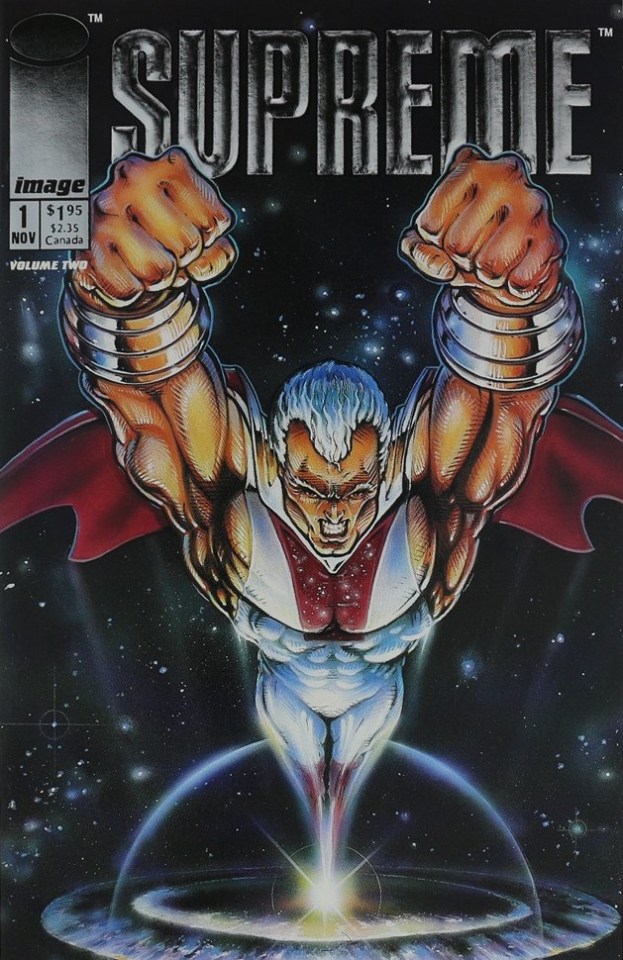
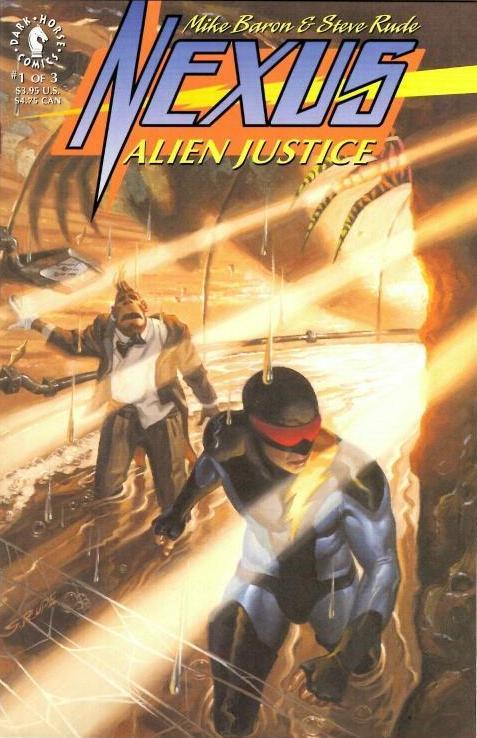

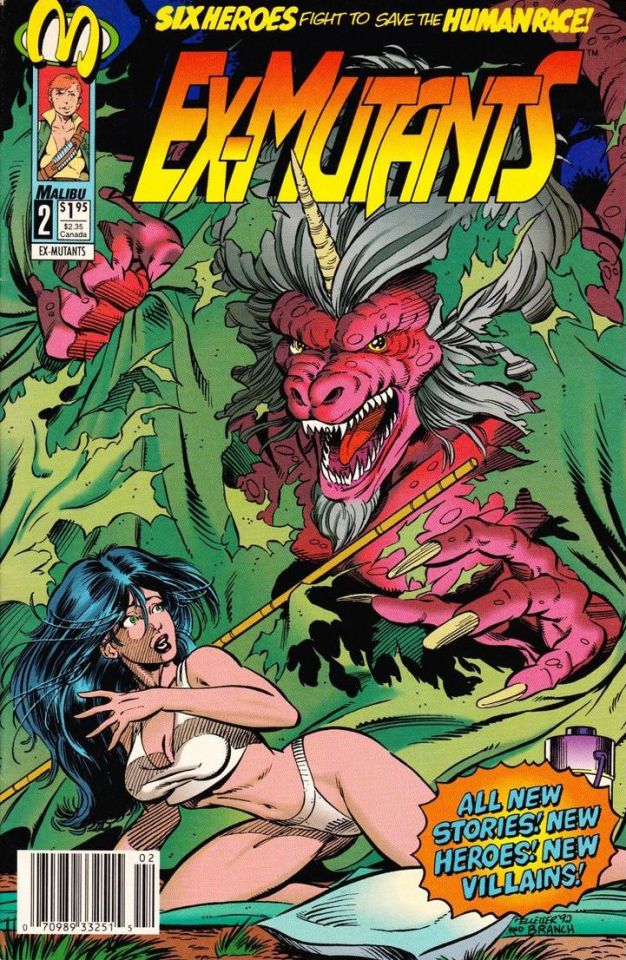
Released 30 years ago this week:
Supreme #1 by Rob Liefeld & Brian Murray, Eric Stephenson & Richard Horie, cover by Murray
Nexus: Alien Justice #1 by Mike Baron & Steve Rude
Shadowman #10 by Bob Hall
Ex-Mutants #2 by Thomas Mason, Dave Olbrich, Chris Ulm & Paul Pelletier
#supreme#nexus#shadowman#ex mutants#rob liefeld#brian murray#mike baron#steve rude#bob hall#thomas mason#paul pelletier#image comics#dark horse comics#valiant comics#malibu comics#comic books
7 notes
·
View notes
Photo
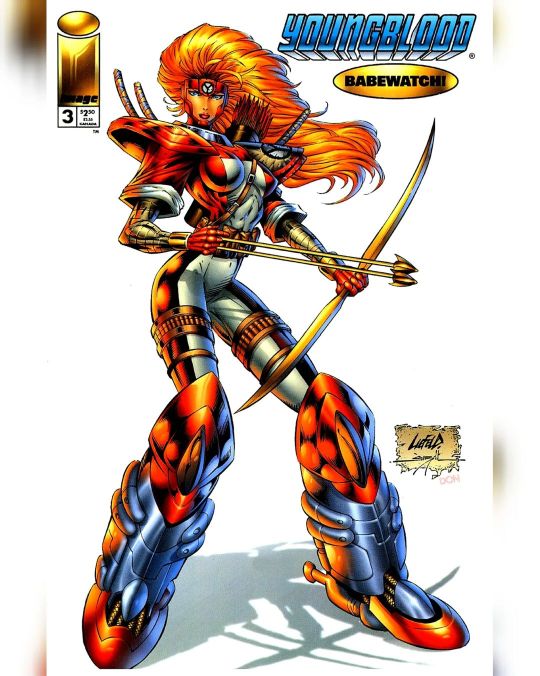
Youngblood vol 2 3 (1995) . Babewatch part 1 . Written by Rob Liefeld, Jim Valentino and Eric Stephenson Penciled by Todd Nauck Inked by Rob Liefeld, Danny Miki and Karl Altstaetter Colors by Chris Lichtner and Quantum Color FX Lettered by Kurt Hathaway Edited by Brent Braun and Jim Valentino . Diabolique had turned all male superheroes into females... . See more relevant content here: #marvelman901youngblood #marvelman901robliefeld #marvelman901toddnauck #marvelman901image . #image #imagecomics #shaft #youngblood #diabloique #90s #robliefeld #toddnauck #badrock https://www.instagram.com/p/Cpl6IHZqqWk/?igshid=NGJjMDIxMWI=
#marvelman901youngblood#marvelman901robliefeld#marvelman901toddnauck#marvelman901image#image#imagecomics#shaft#youngblood#diabloique#90s#robliefeld#toddnauck#badrock
3 notes
·
View notes